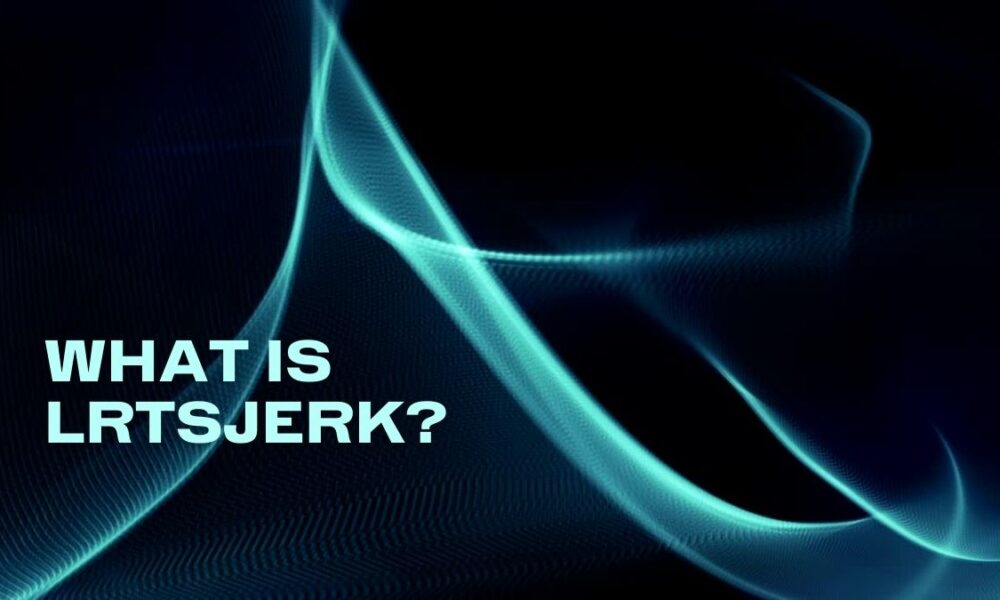Tech
Lrtsjerk: Decoding the Online Jerk in the Digital Age

The internet has revolutionized communication, fostering connections and information sharing on a global scale. However, this virtual landscape also harbors negativity, with a particular breed of online trolls thriving in its anonymity. Enter the “Lrtsjerk” – a term that perfectly encapsulates the excessive negativity and disruptive behavior plaguing online interactions.
Understanding the Lrtsjerk: A Breakdown of the Term
“Lrtsjerk” is a portmanteau, a word formed by combining two existing words. In this case, it merges “lots” and “jerk,” creating a potent image of someone who exhibits an overwhelming amount of negativity online. This negativity manifests in various forms, including:
- Flaming: Posting inflammatory and aggressive comments intended to provoke arguments and disrupt discussions.
- Trolling: Deliberately posting provocative or offensive content to elicit a negative reaction from others.
- Cyberbullying: Using electronic communication to bully a person, typically by sending messages of an intimidating or threatening nature.
- Spreading Misinformation: Sharing false or misleading information, often with the intent to deceive or manipulate others.
- Hate Speech: Attacking a person or group on the basis of attributes such as race, religion, ethnic origin, national origin, sex, disability, sexual orientation, or gender identity.
These behaviors by Lrtsjerks can have a significant impact on online communities:
- Creating a Hostile Environment: The constant barrage of negativity discourages meaningful discussions and drives away constructive users.
- Silencing Diverse Voices: Lrtsjerks often target users with differing opinions, stifling healthy debate and fostering an echo chamber effect.
- Causing Emotional Distress: The targeted nature of Lrtsjerk behavior can cause anxiety, depression, and even fear in victims.
The Rise of the Lrtsjerk: Why Now?
Several factors have contributed to the rise of Lrtsjerk behavior online:
- Anonymity: The veil of anonymity provided by the internet emboldens users to engage in behavior they wouldn’t dare to in person.
- Lack of Accountability: The decentralized nature of online platforms can make it difficult to hold Lrtsjerks accountable for their actions.
- Confirmation Bias: Social media algorithms tend to create echo chambers, where users are exposed primarily to information that reinforces their existing beliefs, potentially fueling negativity towards opposing viewpoints.
- The “Us vs. Them” Mentality: The anonymity and detachment of online interactions can foster a sense of tribalism, leading users to demonize those who disagree with them.
The Many Faces of the Lrtsjerk: Different Motivations
While the outward behavior of Lrtsjerks may seem uniform, their underlying motivations can vary:
- Attention Seeking: Some Lrtsjerks crave attention, even negative attention, and may resort to trolling or flaming to get a reaction.
- Boredom: In the absence of meaningful engagement, some users may resort to negativity online for amusement.
- Personal Issues: Lrtsjerks may be projecting their own insecurities or frustrations onto others through online negativity.
- Ideological Extremists: Some Lrtsjerks are driven by strong ideological beliefs and may engage in online negativity to silence opposing viewpoints or spread their ideology.
Beyond the Anonymity: Identifying Lrtsjerk Behavior
Spotting Lrtsjerk behavior can be relatively easy:
- Excessive Negativity: A consistent pattern of negativity, including insults, hate speech, and personal attacks, is a clear sign.
- Provocation: Lrtsjerks often attempt to provoke reactions by posting inflammatory or controversial content.
- Disrespect for Others: Lrtsjerks show little regard for opposing viewpoints and often resort to personal attacks rather than reasoned arguments.
- Spreading Misinformation: Sharing false or misleading information, usually without any attempt to verify its authenticity, is a hallmark of Lrtsjerk behavior.
FAQs: Navigating the Lrtsjerk Landscape
Q: How can I deal with Lrtsjerks?
- Don’t Engage: Engaging with Lrtsjerks often fuels their negativity. Ignore them and report their behavior to the platform moderator.
- Document Everything: If you are being targeted by a Lrtsjerk, keep screenshots or recordings of the harassment for reporting purposes.
- Seek Support: Don’t suffer in silence. Talk to friends, family, or online support groups for advice and emotional support.
Q: What can online platforms do to combat Lrtsjerks?
- Clearer Policies: Platforms need to have clear and well-defined policies against online harassment and cyberbullying.
- Improved Moderation: Investing in robust moderation systems and implementing stricter enforcement can deter Lrtsjerk behavior.
- Empowering Users: Platforms can provide users with tools to report abuse and block L
